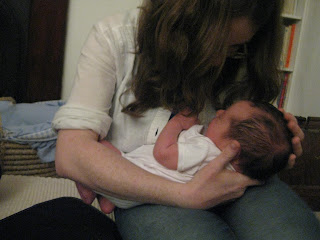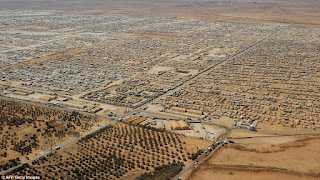For the first time
It seemed that, for the first time in a while, the mother
was living with the daughter. Maybe this stemmed from the daughter’s pregnant
state. The way she lay in the house throughout her muffled day, un awakened by
the teetering of birds as they scrambled to the top edges of adjacent and
unstable twigs and branches. Undisturbed by the churn of day and night as the
workforce is tossed unsafely out onto naked pavements with reluctant, unremitting bodies. Unaware of the growl of the bus and the high soar of the
motorcycle.
The girl’s mind was
congealed. Molded to the place she hadn’t called her home before. Now, unpasting herself from its dim surface would have entailed the sticky noise of detachment- the release of the pegs and hooks and other bounds that instinctively
held her here in its cradle, cohered to this new ground. Just as a nomad might sweep the floors she
finds, not because they are portioned according to her ancestral lineage or have
drained the blood of victory or defeat of some inherent emotional ethnic
attachment; but because it is the portion of the great ground allocated to her
most immediate future.
The daughter was
watching over the doorways and curved corridors, with perhaps a janitorial
concern, if that word is meant in the sense of the highest American ideal, a conviction
in the dignity and worthiness of all professions that fuel a larger
unexplained, purpose. She was watching
the evening settle. But the road outside the window frame at once shielding and
opening their sitting room was no more significant than a television screen
broadcasting far away events, the characters in whose stories might be mused
over by a distant and contemplative audience. Especially on Fridays, when an
aggravated nervous fear swept through the establishment and necessitated an
extra police presence. Wide hipped, swaying men and women with round, childlike
faces despite the inathletic middle age of their bodies. They paced past the
shop fronts, which were transformed from fast food cafes into full course
restaurants as the mosques spilled young families, leisurely students,
worried mothers and it seemed strange to her and harrowing to them, no doubt,
how young the congregation was. How un tapered with generational hierarchy. How
could religion still be so valid when only pomp and the sort of stoic duty one
owed tradition had preserved Christianity to the dreg ends of the last century?
Perhaps they’d all read their curriculum issued history books too avidly and
had forgotten to look outside and register the jigsaw of the seasons as they
bartered and exchanged for portions of the ever rotating year.
“Don’t look”
A man, apparently loafing on the street corner opposite,
screamed at the shrill height of his own voice.
The car driver turned towards him, demurely surveying his
other shoulder for competitors in traffic, and saw a young boy, muffled by a
black bomber jacket slide to the ground from his bicycle and turn two times
around.
Writhing, he retook his full posture and started chiding the
gang of hooded youths clouding the curb.
“Don’t cross when its RED!!”
The young boys laughed in sudden incomprehension, feigning innocent
aghast, at the student’s spiny outburst.
All of a sudden, it was clear that the plaintiff was from the
established University, the one with the more obscure, less understood and yet
equally robust channels to pay one’s way in. But they were only boys, much less
students, floating by, allowed by their bureaucratic petroleum affiliated fathers;
a way to see the other side of the world alone. But, barely out of their teens,
they compensated by desperately retaining all the herd-like impulses they’d
known and part resented at home.
The Cambridge boy, on the other hand, knew how to be alone.
All of his stature and the scarlet hue of his chaffed jaw line spoke this. Days
of reading, away from anyone, wouldn’t jeopardise his strength. He could speak
only by text for a weekend and still go out to a bar at the end of it and pull
a fresh girl. Whereas they were too shy, too daunted and thus perceived of as
incoherent, simple, rude, to do this. They spluttered self righteousness among
themselves. Aware that the curves and curb of their language allowed them to
draw simple ridicule on the boy’s strange, peripheral confidence. And yet their
laughter also made them feel pack-like and childish, as if it were a gaunt
recourse in the absence of other, richer kinds of communication. They wished
they could have blended more coherently into the tarmac wash of this town, that
they were as truly unobtrusive and invisible
to it as they were now to their father’s eyes. Perhaps a few of them were also
aware that at that moment their language had only scratchy incomprehension for
that billowing crowd of winter shoppers that swallowed their swaggering progress
down the paved boulevard. It had the itch that Hilter’s German had held for their
1930s working class predecessors. To the listeners, or more precisely chance hearers,
these boys spoke in a strange contortion of tongues which rendered them
unreasoned, insensible and liable only to conform.
The Cambridge
cyclist peddled on, a new anecdote had filled his mind and the wind blew strong,
howling a kind of primeval message which reminded him of one of Hardy’s poems.
She felt her breast
by the bay window again for that stale smell, with all the accompanying warm
forgiveness of milk. It didn’t come yet. The baby popped in her womb, these
pops were satisfying to her, they seemed at once part of him and herself. They
seemed defiant, like the smack of lips, they seemed alive, like the splash of
water or the maturing of some muscle, the sticking out of a tongue, the
admiring pronunciation of a name upon whose empty guise, love has fallen.
She felt like you did when you crunched
crisps as a little girl, when you peeled a label from its damp, clinging
surface in one successful piece. Or when you when you burst a tight thick parcel
of bubble wrap.
The wind blew up the
oars and tummies of conversation without allowing her to taste its real hull.
She knew that there were people around who spoke in the same sighs and tones,
with the same distraction as herself, although she hadn’t seen them and didn’t
know the subject of their chatter.
Some of them might
even have babies as well, people with whom she could perhaps slide into a sort
of prepared relationship with, despite her exemption from all the normal
prerequisites attached to procreation in her social grouping. A house, a job, a
man (who also had a job), a common sense of future – a shared linguistic and emotional
vocabulary. No, for them, the baby was supposed to be the master tailor, the
proficient stitch maker, the sewer of all loose holes. Everything was to begin
with him, as if he would bring revolution to the world (not so bad, she
thought, since many children have to break ties to achieve this status – we are
accruing it upon him from birth).
But she did wonder
whether the fact that she was living alongside her mother, with this sort of bubbly
echo inside her, in the absence of her father, whose money they still spent on
their weekly grocery shop, might become a sort of resentment, on either side.
But not prone to introspection, she was the eternal viewer of all others and
thus she assumed her mother might harbour some objection. The fact that her daughter
had come back after 9 years and accordingly demanded a solidity inside their
household might show itself in all its injustice on looking back. The daughter
was ardently aware that in the tenuous strains of their growing up, the
stability which she now pretended had never even existed. She feared that inside
her mother, might lurk the same long incubated and yet adamantly
denied disdain that the abandoned feels on the return of her feuding lover, only
after the other woman has failed him.
The mother, nostalgic
and somewhere unfulfilled, was not concerned with apportioning blame. But the
daughter nevertheless wondered, given the luscious lifespan still ahead of them
both, whether, with the courage of hindsight, she would see this phase as an undue
advantage ripped quickly, strategically.
The daughter’s
dreams had been occupied by sex with vaguely known boys. The boys were all
involved in some tangle of a story beforehand. Some maze of an adventure and a
secret yearning that she’d thought was un returned until their eventual,
fumbling union. The latest was on the marble floor of a very grand house in
Damascus. They’d both entered, after some paradoxical story that involved
capsizing boats and making a film. This one was angel eyed and golden headed,
she’d met him before and always regarded him as younger than herself although
he was, in fact, also 22. Under the marble dome he said he didn’t when she
asked if he objected to the fact that she was pregnant with someone else’s
child. The others had shied away and been diverted, the others were older, more
recognisable people in her life. An awareness perhaps ignited by the simple
spotting of their name on a chat or facebook page. Some such connection. She
awoke to David Bowie’s Changes projected through the wall they shared with
their neighbours.
She knew these
dreams represented defiance, bridges built high and sharp arched, traversed
only by the stealthiest of itinerant
crossers, who did not fear the vicious swell below. She knew they represented a
sly desire for escape. Or the absence of an instated stuporic schedule between
them. She had always been aware of the possibility of this immanent turn in
their relations. Now one side was solid and the other, still as sticky as a
malleable kind of purity, as defiant as glue, eager to form abstract shapes in
her hands.
The fact that
commitment was either an individual decision or a personal state of being,
added untold complications. For him there was merely an open latch that needed
to be closed. And a child was a matter of course- or did she over simplify?
Her mother was discussing
schedule in her rushed way. She listened, not exactly herself (she still
believed her real self was an ethereal unwound being, best expressed either in
conversation or mere glances with strangers as yet unmet, though strangely
known). The baby was coming soon and she wanted to have the carpets cleaned.
And yet, her daughter interrupted her. With the slow spacey tone that makes a
white man think an African’s caged, defiant eyes contain rudeness when in fact
they are filled with honesty and stark conviction, she told her she wanted to
get the old bouncing chair they had used as children down from where it had
been stowed in their loft.
The mother looked
tight. She cut the silence. Yes and no, well, you’re bulbous and liable to
fall, and I, I, she could have flagged before she spoke the specifics of any of
ailments, which most certainly were there.
“Maybe we could wait
until Azzadine gets here”
Azzadine – the word was over-pronounced and somehow dulled
in her mother’s pronunciation. It had begun to routinely slip off her lips with
a liberality that the daughter feared, since her mother knew him only so
slightly. She imagined his tottering figure at the top of a strained ladder.
She immediately replaced him with herself. Not only because she had a greater
likelihood of success but also because she could rely. At this thought, she could feel herself become less ethereal.
Azzadine, on the other hand seemed foggy and impermanent, more liable to fall.


Comments
Post a Comment